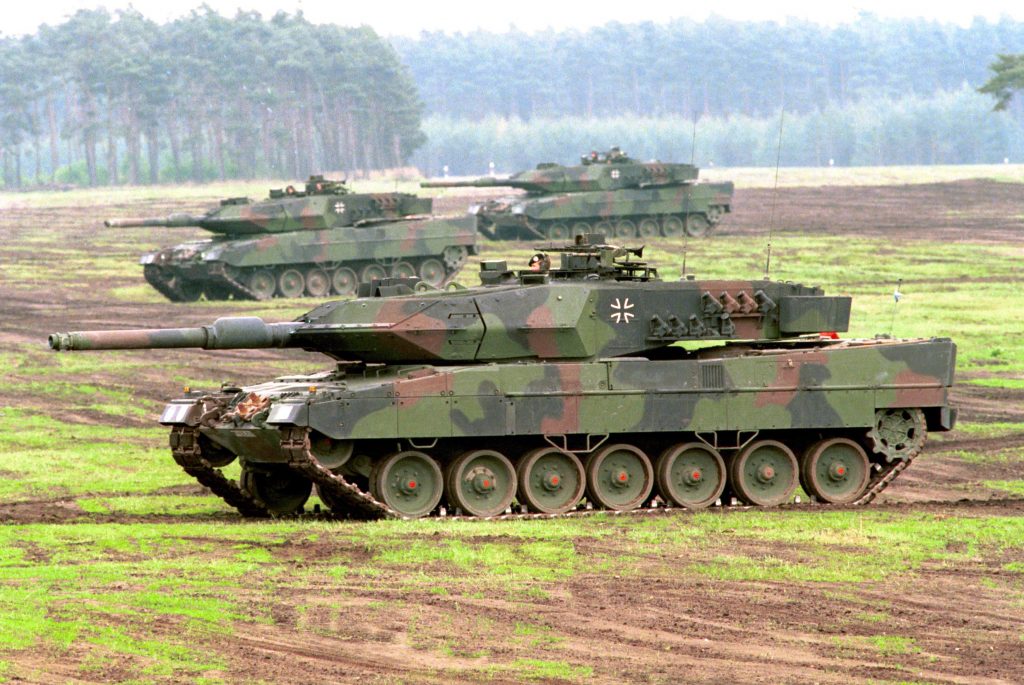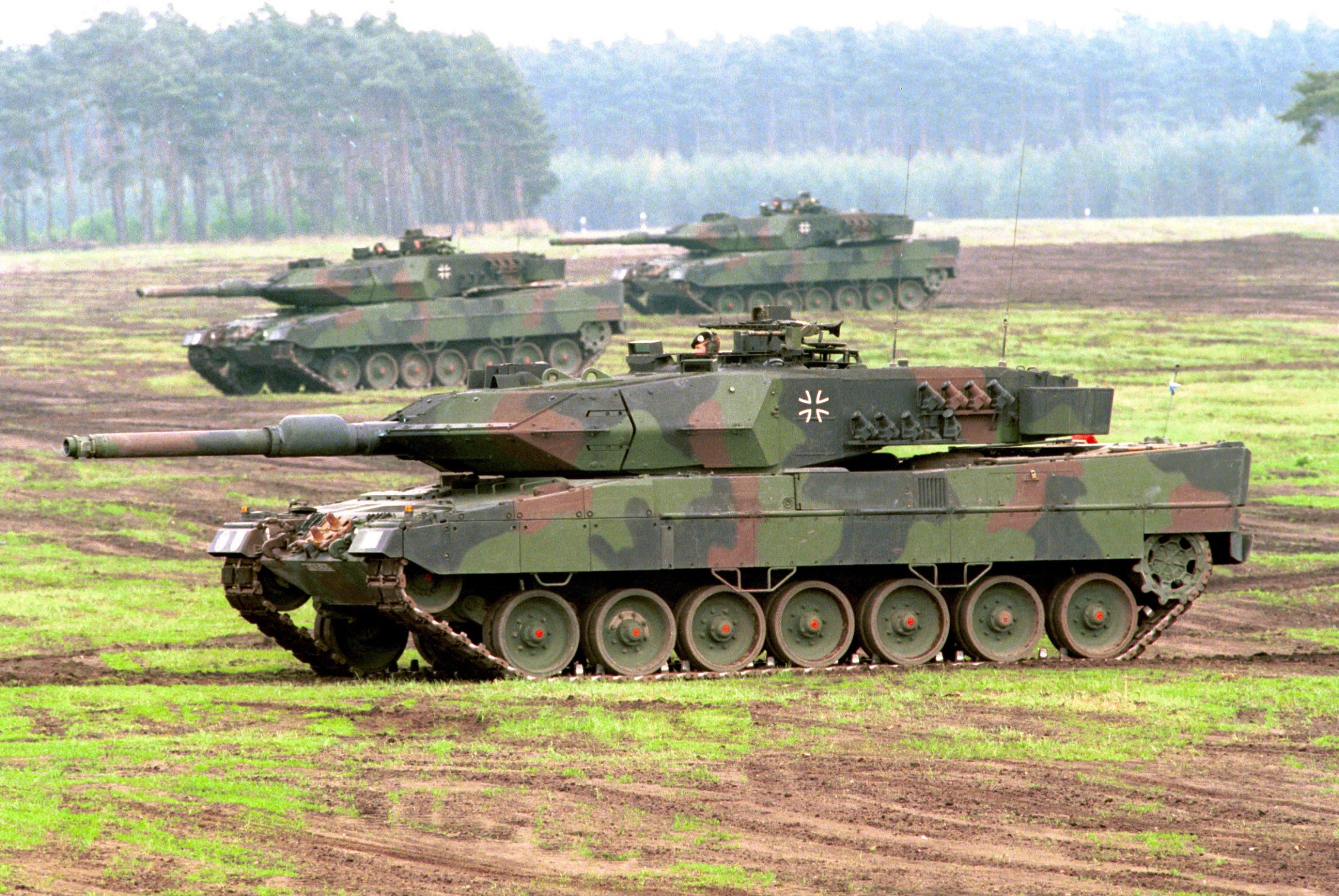
In a significant development, the highly anticipated arrival of the Leopard 2 main battle tanks in Ukraine has sparked a heated debate between two German defense powerhouses, Krauss-Maffei Wegmann and Rheinmetall, regarding the rightful ownership of the tank.
The Chairman of Rheinmetall, Armin Papperger, was the first to assert his company’s rights to the Leopard 2 tank, provoking Krauss-Maffei Wegmann. The latter demanded a statement from Rheinmetall to renounce its claims on the Leopard 2, but to no avail. The refusal of Rheinmetall to comply with this request ultimately led to Krauss-Maffei Wegmann pursuing legal action by suing for an injunction.
This disagreement has escalated into a legal battle, which will take place at the Munich District Court on May 2. While the world anxiously awaits the performance of the Leopard 2 in combat against the Russians, the German defense industry is embroiled in a fierce legal dispute over the ownership of this highly coveted military asset.
The political landscape in Germany’s military land systems market has been significantly disrupted following a controversial interview with the head of Rheinmetall, Armin Papperger, published in mid-March by Neue Zürcher Zeitung (NZZ), a prominent German-language daily newspaper in Switzerland.
In the interview, Papperger unequivocally asserted that Rheinmetall possessed the rights to the Leopard 2A4 tank, which has prompted Krauss-Maffei Wegmann to demand a “cease-and-desist declaration” from Rheinmetall. However, when Rheinmetall refused to provide such a declaration, Krauss-Maffei Wegmann filed for an injunction.
A spokesperson for the Munich District Court has stated that Krauss-Maffei Wegmann objected to Rheinmetall’s statements as “untrue, misleading factual allegations that violate their rights.”
This legal dispute is likely to have far-reaching implications for the military land systems market in Germany since Krauss-Maffei Wegmann and Rheinmetall are both leading companies in the industry. Although they are partners in some areas, they are also competitors in others.
Case in point: both companies jointly manufacture Puma infantry-fighting vehicles for Germany’s Bundeswehr, which recently contracted them to retrofit 143 Puma IFVs at the cost of €770 million. They have also collaborated on the development of the Boxer armored combat vehicle. As a result, this dispute could potentially have wider consequences beyond the ownership of the Leopard 2, as it will undoubtedly alter the dynamics of this highly competitive market.
The Leopard main battle tank project is perhaps the most well-known joint undertaking between Krauss-Maffei Wegmann and Rheinmetall, given its global reputation. While Krauss-Maffei Wegmann is responsible for building the hull and chassis of the tank, Rheinmetall is responsible for manufacturing its turret and gun.
A few years ago, Rheinmetall attempted to acquire Krauss-Maffei Wegmann, but the effort ultimately failed, despite the backing of German government officials. Rumors suggest that the acquisition was blocked due to personal animosity between Rheinmetall’s managing director, Armin Papperger, and Krauss-Maffei Wegmann’s Frank Haun. Instead, Krauss-Maffei Wegmann merged with the French armaments firm Nexter, forming the “KNDS (KMW+NEXTER Defense Systems),” with Haun serving as its managing director.
Recent reports suggest that the current flare-up of tensions between Rheinmetall and Krauss-Maffei Wegmann may be linked to Papperger’s frequent media appearances since the Russian invasion of Ukraine.
Papperger’s proposal to construct a tank factory in Ukraine has been privately criticized by other players in the German defense industry. In contrast, the privately-owned Krauss-Maffei Wegmann has taken a more discreet approach, remaining under the radar while its rival publicly positions itself as a staunch advocate for the European defense industry and the role of German defense capabilities.
The underlying personal and political rivalries between these industry giants, combined with their ongoing legal dispute over the Leopard 2 tank, make for a complex and fascinating case study in the highly competitive world of defense contracting.
Legal Ownership
Recent developments have unveiled a potentially decisive document regarding the ownership of the Leopard 2 main battle tank. The Swiss-German daily newspaper Neue Zürcher Zeitung (NZZ) claims to have obtained a document from 1995 originating from Germany’s Federal Office for Defense Technology and Procurement. The document was issued in response to the Spanish government’s inquiry about who owns the rights to the Leopard 2 tank, as they were considering purchasing the vehicle at the time.
According to the document, the intellectual property of individual parts of the Leopard 2 tank is held exclusively by the German industrial companies involved in their production, which include Krauss-Maffei Wegmann, Rheinmetall, Renk, MTU, and Diehl. However, Krauss-Maffei Wegmann is said to hold the intellectual property of the entire system and bears overall responsibility for it while ensuring that third-party rights are not violated.
While this suggests that Krauss-Maffei Wegmann is the true owner of the Leopard 2, Rheinmetall has a different view. In an interview, Rheinmetall’s chairman, Armin Papperger, claimed that they built a thousand Leopard 2A4s based on their intellectual property. This was during the 1980s when the licensed production of over 2,000 main battle tanks for the German military was distributed among Munich, Kassel, and Kiel. Rheinmetall’s Kiel production site was owned by Maschinenbau Kiel (MaK), which was later sold to Rheinmetall and became Rheinmetall Landsysteme.
The ownership dispute between Krauss-Maffei Wegmann and Rheinmetall has attracted the attention of the Munich District Court, with the former seeking an injunction against the latter. Reports indicate that the dispute could impact more than just the rights to the Leopard 2, as the two companies are leading players in the military land systems market and are partners and competitors in various areas.




